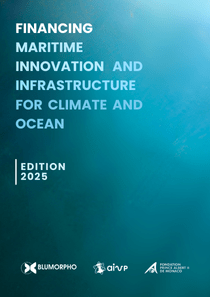Blue Economy

2025 EDITION
MONACO, NEW YORK
Financing Maritime Innovation
and Infrastructure for
Climate and Ocean
Mobilizing innovation and sustainable financing
for the transition of the urban port ecosystem
In the context of the United Nations Ocean Conference, Blumorpho launches the second part of Financing Maritime Innovation and Infrastructure for Climate and Ocean, in collaboration with AIVP and with the support of the prestigious Foundation Prince Albert II of Monaco.
Objectives
- Accelerate the financing of the environmental transition of port cities and their ecosystems.
- Enable the co-construction of bankable collaborations between port cities, financial and innovation partners.
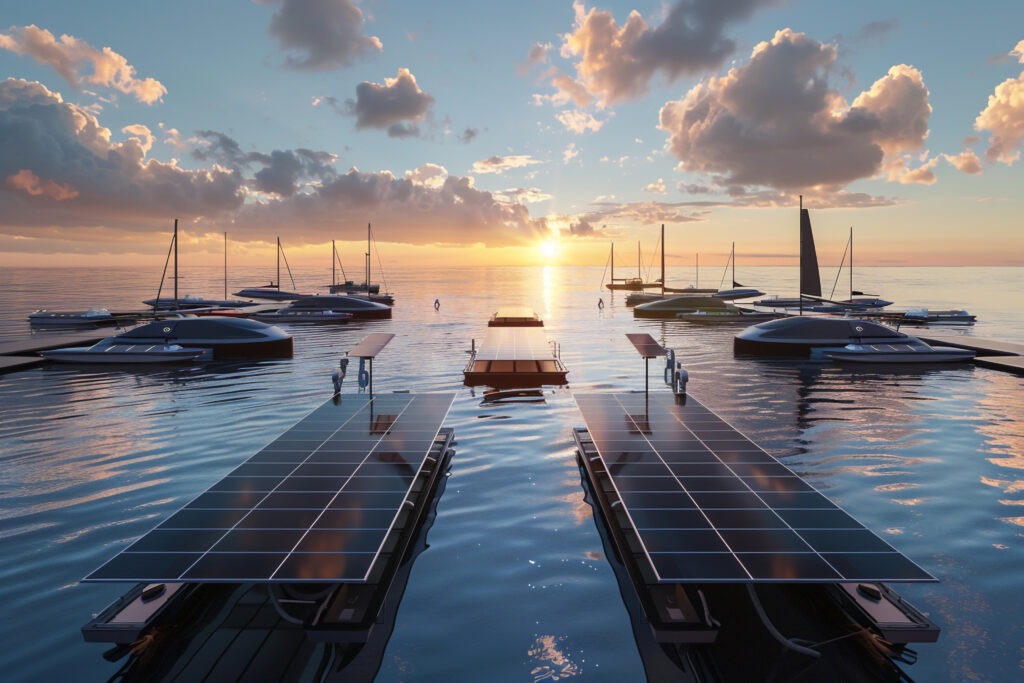
Our approach
a co-construction journey that key stakeholders are embarking on through our initiative
Explore each key dimension of our collaborative approach: each topic is clickable and allows you to discover how each piece fits into the journey.
→ Port cities and their ecosystems are major partners to reach net-zero goal
→ The decarbonization of the maritime industry is a global challenge
→ Major financial opportunities could be accessible…
→ … with the right combination of innovation in technologies and financing schemes.
New Now!
The 2025 booklet on Financing Maritime Innovation and Infrastructure for Climate and Ocean is out now.
Explore how ports, investors, and innovators are driving sustainable finance, climate action, and the transition of the maritime ecosystem. Book a meeting with us to get the latest updates on financial programs in development.
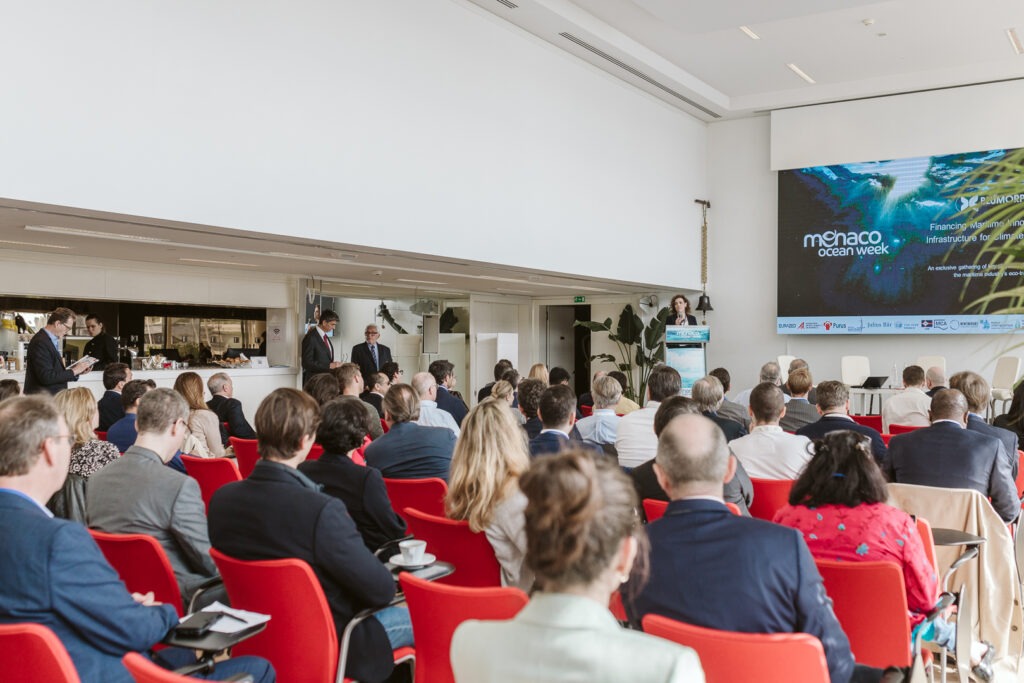
Expected Results
- Set up collaborations between strategic and financial partners for the development and financing of port city infrastructures that meet economic and climate challenges.
- Bring this action to the international stage and defend a strategic vision of city-ports as drivers of sovereignty and sustainable development.
Our partners

Blumorpho provides access to co-Building Sustainable Solutions in Urban-Port Ecosystems for Climate and Ocean Impact
AIVP is a global network of cities and ports. Founded 35 years ago, AIVP brings together public and private stakeholders to work on the future of port cities worldwide.

Founded in 2006, the Prince Albert II of Monaco Foundation is dedicated to advancing Planetary Health. As a partner of BLUMORPHO, the Foundation has already supported the first edition of Financing Maritime Innovation.

“Financing Maritime Innovation and Infrastructure for Climate and Ocean is a unique initiative bringing together leading investors, port cities, the maritime industry and innovators.
It focuses on concrete project financing, transforming emerging trends and innovative solutions into investable opportunities that drive sustainable impact for our oceans, coastal communities, and territorial development.”
Géraldine ANDRIEUX
President and Founder, Blumorpho
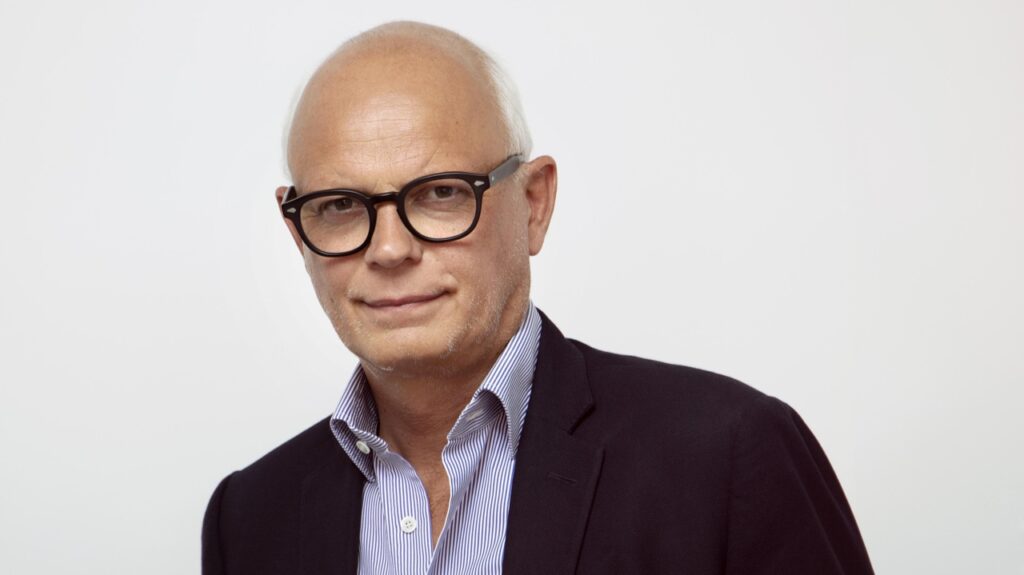
“Port cities have always been places of exchange, movement, and progress. Today, they must also be at the forefront of the ecological transition. This means rethinking infrastructures, investing in sustainable solutions, and ensuring that financial resources are directed towards effective projects. AIVP, the International Association of Port Cities and its about 200 members, has made this a priority, and it is why we are working with Blumorpho. Innovation must be a tool for action, serving climate resilience, territorial development and economic strength.”
Edouard PHILIPPE
President, AIVP

“The Prince Albert II of Monaco Foundation is committed to supporting initiatives that foster the preservation of biodiversity, climate, and ocean health, as well as the promotion of sustainable development. The blue economy is not merely another sector of the economy, but a new approach to it, where the interactions among various stakeholders, including investors, innovators, and urban-port ecosystem players, are essential”.
Olivier WENDEN
Vice-Chairman & CEO, Prince Albert II of Monaco Foundation
Our scope of action
AIVP and Blumorpho have joined forces to take action on the urban-port ecosystem, including cities and their citizens, ports and their associated industries, and the maritime industry as inseparable elements of sustainable territorial development. This holistic approach integrates urban, port and industrial dynamics to strengthen innovation and accelerate the ecological and social transition, while taking into account the specific features of each territory.
- Green Infrastructures
- Post Fossil Fuels Ecosystems
- Biodiversity Protection
- Digitalization, a Vector of Economic Value
June 6, 2025: A Co-Construction Day
From 9.00am to 6.00pm CEST at Yacht Club de Monaco.
Full agenda and speakers line-up to be revealed.
2 Inspiring Panels
One-on-One Meetings
Workshops
They support this action



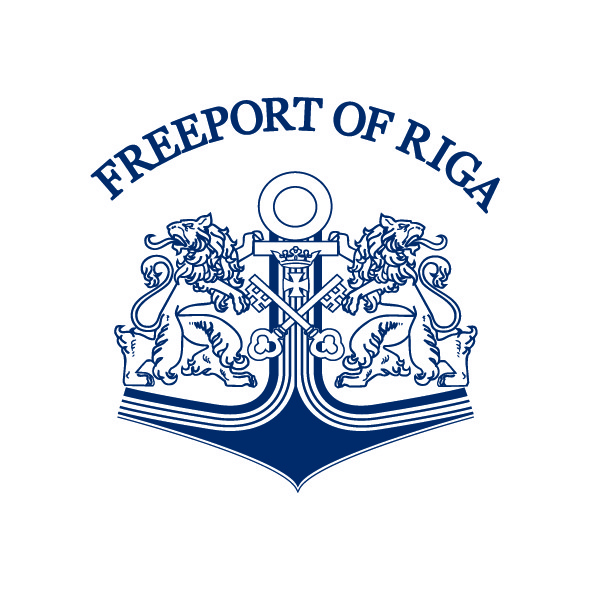

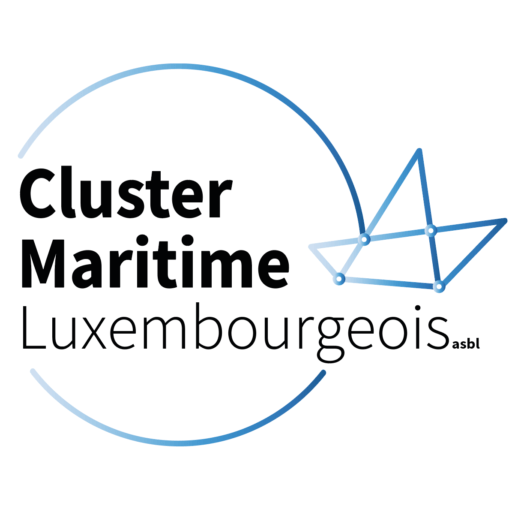

Program 2025
09:30 -10:00 AM
OPENING
Ballroom
Welcome to Financing Maritime Innovation and Infrastructure for Climate and Ocean
10:00 - 10:20 AM
WELCOME
Ballroom
Introduction Words
20 min
• Mr Bernard d'Alessandri, General Secretary, Monaco Yacht Club
• Mr Bruno Delsalle, General Secretary, AIVP
• Mr Romain Ciarlet, Secretary General and Executive Director, Prince Albert II of Monaco Foundation
• Mrs Géraldine Andrieux, CEO of Blumorpho
10:20 - 10:50 AM
DIALOGUE
Ballroom
Objectives and Expectations: A Dialogue with Leading Port Cities and Innovative Companies
30 min
• Port de Bordeaux
• Port Autonome de Kribi
• Port of San Diego
• Port of Riga
• SMEG
• ...
10:50 - 11:10 AM
NETWORKING
Observatory Deck
Coffee & Networking Break
11:10 - 11:40 AM
PANEL DISCUSSION
Ballroom
Green Infrastructure Financing - Best Practices and Collaboration Schemes
20 min series + 10 min Q&A
• Mrs Tisha Marajh, Group Sustainability Officer at Republic Bank
• Mr Andrea Minerdo, Executive Chairman, NatPower H
• Mr Alberto Cappato, Director of Innovation and Sustainable Development at Porto Antico di Genova, Vice President of AIVP
• Mr Roberto Alberti, Senior Vice President & Chief Corporate Officer, Costa Crociere
• Mr Jason H. Giffen, Chief Sustainability and Innovation Officer, Port of San Diego
11:40 - 12:10 PM
PANEL DISCUSSION
Ballroom
A New Approach to Financing Ecosystems: Debt, Bonds and Alternative Mechanisms
20 min series + 10 min Q&A
• Mr David Bucknall, CEO, Ineos Energy
• Mr Philip Wingeier, Managing Director, Investment Solutions Department, Plurimi
• Mr David Albertani, CEO, Catalytic Finance Foundation
• Mr Simone Molteni, Partner, Primo Climate
• Mr Jean-Frédéric Laurent, CEO, Port de Bordeaux
12:10 - 12:20 PM
WRAP UP (AND MORE)
Ballroom
Conclusion, and Additional Food for Thought
10min
We will share the conclusions from our morning discussion and prepare for the afternoon meetings, before going into our networking lunch.
12:20 - 1:40 PM
NETWORKING
Observatory Deck
Lunch & Networking Break
1:40 - 1:50 PM
WELCOME BACK
Ballroom
Welcome Back and Afternoon Introduction
1:50 - 2:35 PM
ONE-ON-ONE MEETINGS
Ballroom
Curated Connections: One-on-One Meetings
45min
Building on our digital sessions, we will host curated 45-minute one-on-one meetings designed to foster concrete collaborations. These meetings will connect a diverse range of participants: city and port representatives, investors and financial players, startups and corporates, based on shared interests and complementary goals. Each interaction is carefully matched in advance to maximize relevance and ensure actionable outcomes.
2:40 - 3:20 PM
WORKSHOP
Ballroom
Workshop Breakout Sessions
40min
• Session 1 - Finance and the Renewable Energy Value Chain: Relevant Business Models
• Session 2 - An Ecosystem Approach to Supporting Port Cities
• Session 3 - Climate Resilience and Financing Challenges
• Session 4 - Innovation and Port Cities: A Collaborative Approach with Start-ups
3:25 - 4:10 PM
ONE-ON-ONE MEETINGS
Ballroom
Curated Connections: One-on-One Meetings
45min
Building on our digital sessions, we will host curated 45-minute one-on-one meetings designed to foster concrete collaborations. These meetings will connect a diverse range of participants: city and port representatives, investors and financial players, startups and corporates, based on shared interests and complementary goals. Each interaction is carefully matched in advance to maximize relevance and ensure actionable outcomes.
4:10 - 4:25 PM
WORKSHOP RESTITUTION
Ballroom
Investing in Port Cities: Next Challenges and Conclusions
15min
In this closing session, we will share key insights and takeaways from the workshop discussions. This restitution will highlight emerging challenges, investment priorities, and collaborative opportunities for driving innovation and infrastructure in the urban-port ecosystem.
4:25 - 4:40 PM
CONCLUSION
Ballroom
Closing Statements (Tomorrow, UNOC, New York and beyond)
15min
• Mr Sébastien Knecht de Massy, President of Monaco Chamber of Shipping
• Mrs Tisha Marajh, Group Sustainability Officer at Republic Bank
• Mr Alberto Cappato, Director of Innovation and Sustainable Development at Porto Antico di Genova, Vice President of AIVP
4:40 - 6:00 PM
NETWORKING
Observatory Deck
Networking Cocktail
Work with port cities and ecosystem on the challenges and objectives
January - March 2025
Mobilizing the ecosystem and interact through digital sessions
March - June 2025
Co-construction day,
June 6th in Monaco
June 2025
Ensuring the action's perenniality
June & Beyond
Who is involved?
Port Cities
Municipalities, Ports, Urban Communities
- Gain access to financing tailored to their specific needs
- Forge strategic collaborations to achieve sustainability targets
- Showcase strong commitment and leadership in the environmental transition
Investors
Private Equity, Banks, VC, Public Institutions
- Identify bankable projects with strong investment potential
- Leverage and introduce specific expertise
- Access market intelligence on key challenges and opportunities
Solution Providers
Corporates, Startups
- Access market opportunities in the maritime and port city sectors
- Unlock new funding sources
- Gain market intelligence on specific use cases to strengthen their Unique Value Proposition (UVP)
Key data to deep dive into the topic

Maritime: A Hard-to-Decarbonize Industry
The IMO has set clear targets for reducing emissions from the global shipping fleet: a 20–30% reduction by 2030, a 70–80% reduction by 2040, and full carbon neutrality by 2050. Additionally, maritime decarbonization could create up to 4 million jobs, increasing the economic attractiveness of port cities.

New Regulations Create Opportunities
The EU Emissions Trading System (EU ETS) now includes emissions from ships over 5,000 tons in EU ports, creating a financial incentive to reduce their carbon footprint. Key strategies for lowering these emissions include reducing ship speed, optimizing navigation, adopting clean propulsion technologies, using alternative fuels, and implementing comprehensive decarbonization strategies.
This transition requires structural changes across the entire ecosystem—including port cities—that must develop new industrial sectors. This also involves optimizing logistics flows and rethinking port spaces to accommodate the evolving needs of the maritime industry while enhancing biodiversity and integrating harmoniously with surrounding urban environments.
Urban-port ecosystem stakeholders can rely on recognized environmental standards, such as Green Marine International, which helps measure decarbonization efforts and reassures investors about project sustainability.
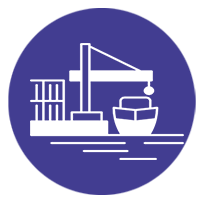
Port Cities as Drivers of the Ecological Transition
About 40% of the global population lives in coastal areas, and 12 of the world’s 15 largest cities are located in coastal zones. By 2030, the market value of marine and coastal industries is expected to reach $3 trillion per year, accounting for approximately 5% of global GDP.
To enable the sustainable transition of urban-port ecosystems, ports and cities must invest in adapted infrastructure and equipment. They serve as a critical link for deploying innovative solutions, including circular economy initiatives, clean energy development, biodiversity preservation, and the enhancement of natural heritage. By doing so, port cities can transform into innovation hubs while strengthening their resilience.
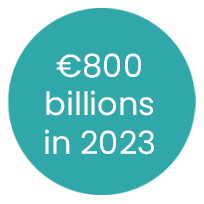
The Sustainable Finance Opportunity for the Urban Port Ecosystem
Sustainable finance presents a major opportunity for AIVP members, attracting growing interest from private investors, particularly banks. According to Crédit Agricole CIB, global sustainable bond issuances reached approximately €800 billion in 2023, with 60% classified as green bonds. In 2025, this market is expected to grow by nearly 10% compared to 2024.
Financial markets seek profitable, risk-free projects with no risk of greenwashing or bluewashing, along with access to a strong pipeline of operations. The collaboration between BLUMORPHO and AIVP aims to meet these expectations by leveraging AIVP’s unique network and BLUMORPHO’s expertise in innovation and financing.
Financing Maritime Innovation: Our Experts Insights
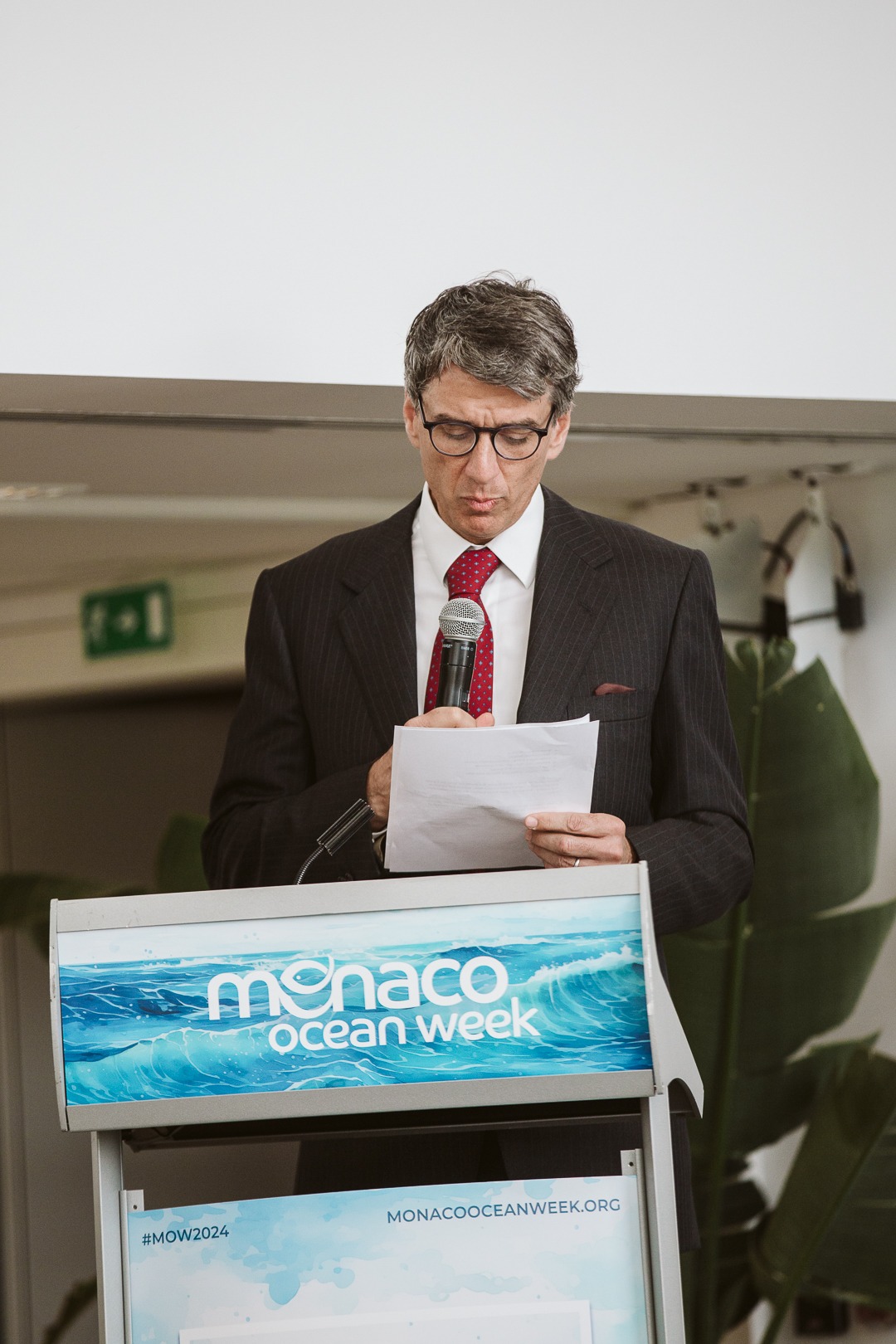
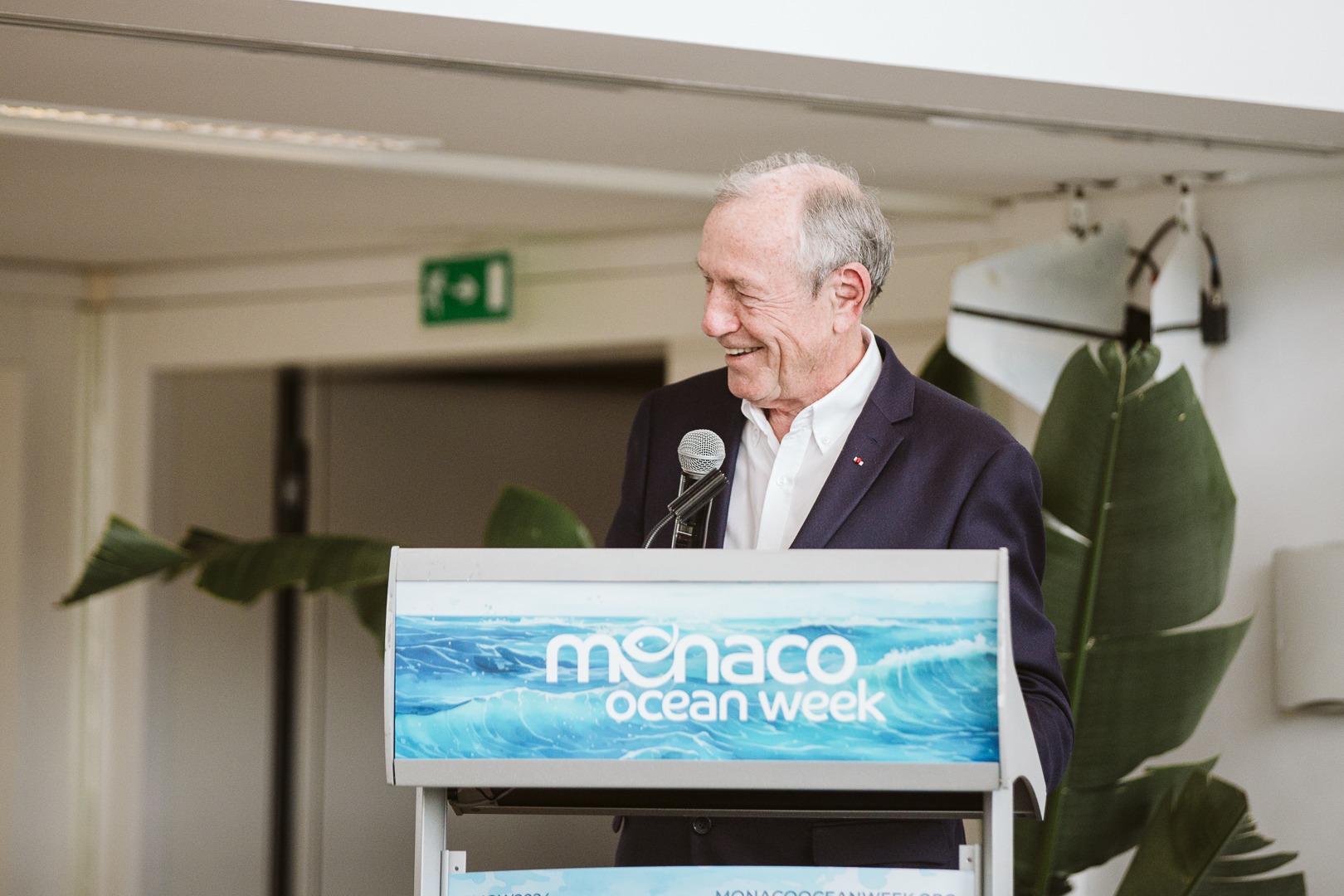
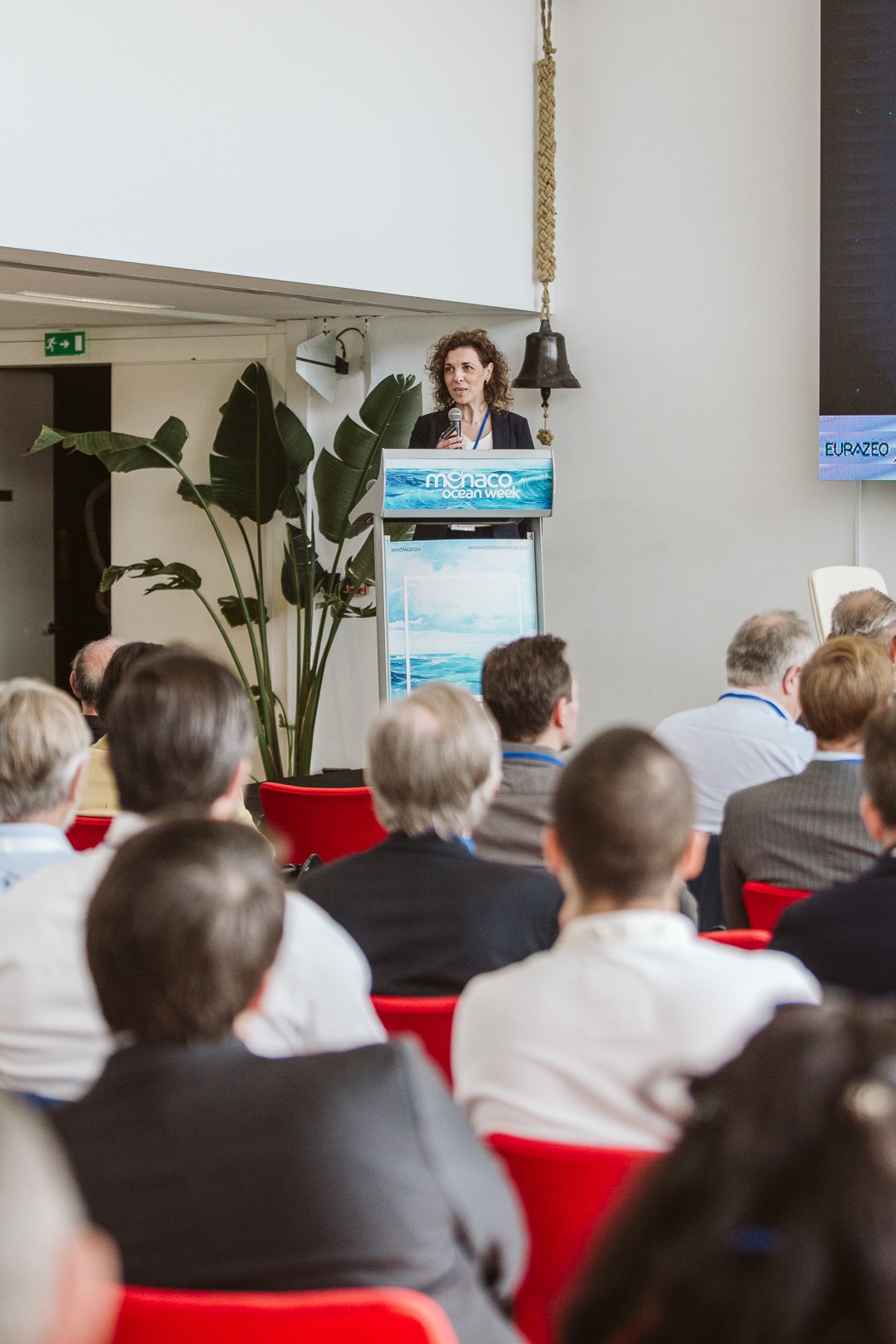
"What’s next to invest in maritime ?" will be the central point to address the industry’s transformation through innovation and investors led initiatives.
This will be done through high-level interactions to engage stakeholders towards future collaboration, focusing on actions and finance of the maritime’s evolution.
Maritime is at the heart of environmental challenges.
It is a Political, Geostrategic and Economic Cornerstone.
This industry is facing new regulations and adaptations.
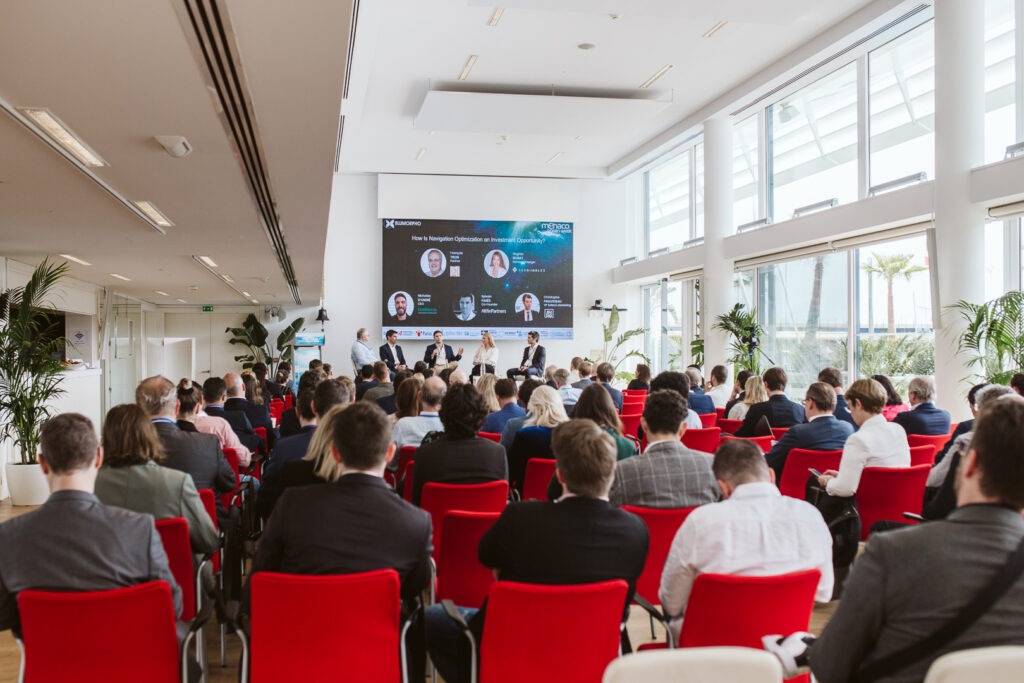
90%
of traded goods are carried over ocean shipping. The demand for shipping will rise by 40% by 2050.
$195B
The global shipbuilding market is
expected to increase to over $195 billion in size by 2030
800M
In total, shipping was responsible for 800 million tons of CO2 emissions in 2021.
Navigation
Materials
Maritime Fuels
Energy
Finance
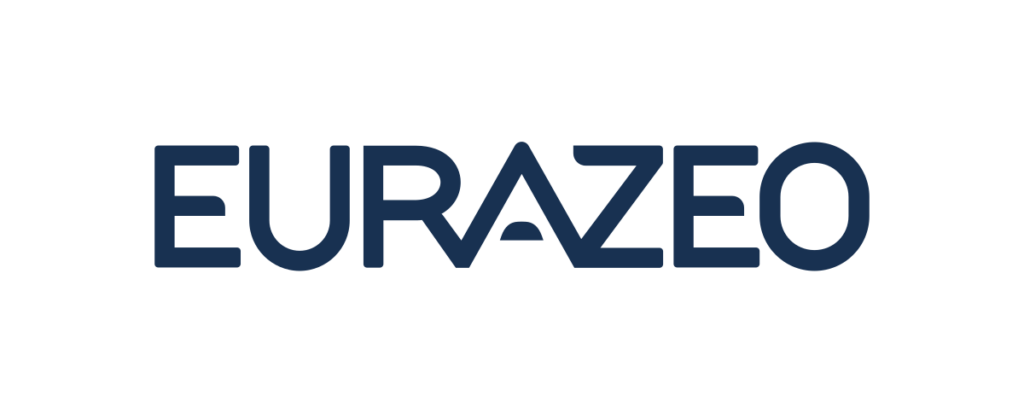


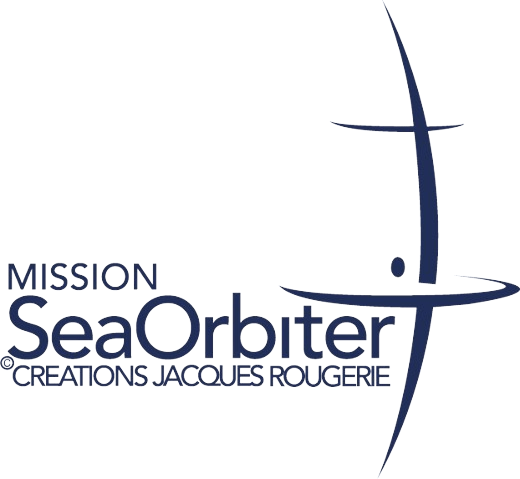



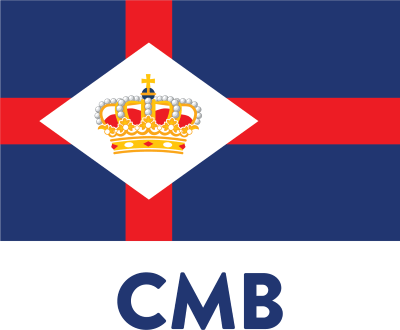
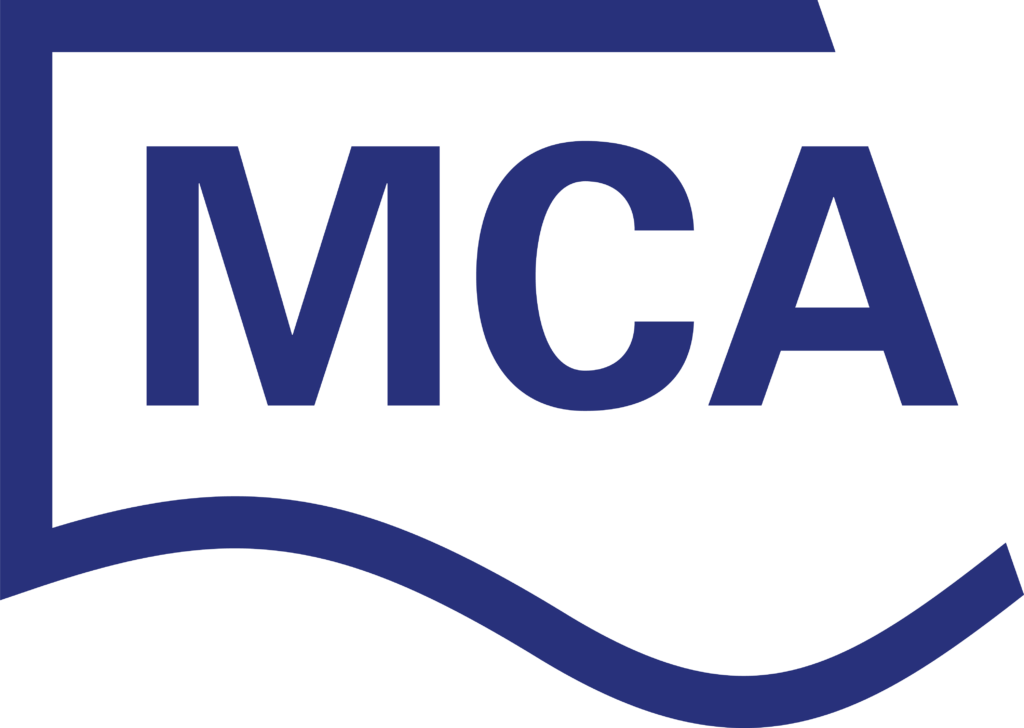
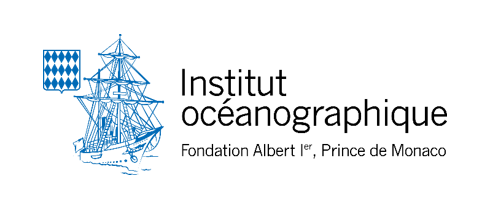
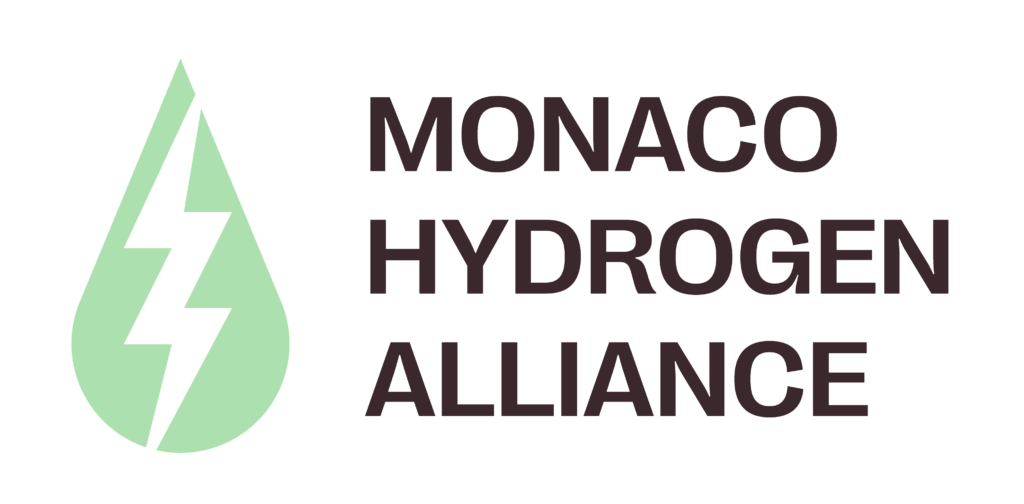


A Dynamic Co-Creation Process to Accelerate the Flow of Capital Towards Decarbonization Solutions
Preparation in Co-Creation Process
Monaco
Follow-Up
Get to know key players through digital sessions
Discussion
Networking
Workshops
Synthesis Opportunities Introduction
Join our actions
Blumorpho works accross the whole blue economy ecosystem. We are happy to have you involved in more actions.
INPHO Venture Summit
A summit focused on investment, answering the question “What’s Next to Invest in Deep Tech?”
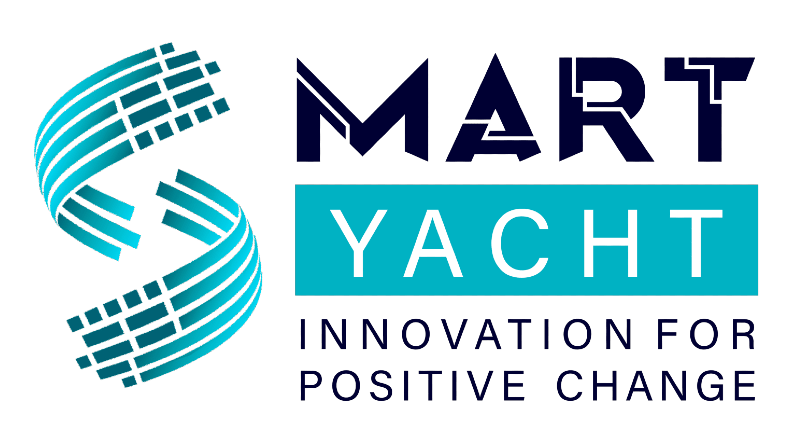
Smart Yacht
Join the Smart Yacht 2024 exhibition area, and showcase your solution to players of this industry.

